Cloud storage services like Google Drive and Dropbox have become too mainstream. Do you know what’s cooking in the storage market these days?
Oh, no, no! Don’t get me wrong! I’m not here with another cloud storage review. Today, I’m going to talk about a whole new model of data storage- the Decentralized Storage!
I’m sure most of you have never heard about it, which is why I’m here to help you understand the basics.
In this article, we are going to learn all about Decentralized Data Storage (or Decentralized Cloud Storage). We will cover everything from its meaning, to its advantages and disadvantages, to some popular example projects, and if it is safe to invest in them.
P.S. Do you know you can even earn money through decentralized storage? How? Let’s jump right into the article to find that out!
- What is Decentralized Storage?
- How Does Decentralized Storage Work?
- Problems with Cloud Storage
- Advantages of Decentralized Storage
- What are Storage Tokens?
- Popular Examples of Decentralized Storage
- Disadvantages of Decentralized Storage
- Who Should Use decentralized Storage?
- How can decentralized storage models prevent massive data breaches?
- Can Decentralized Storage Replace Cloud Storage?
- Should You Invest in Decentralized Storage?
- How to Earn Money Through Decentralized Storage?
- Conclusion
What is Decentralized Storage?
To understand what a decentralized storage is, we first need to understand what a centralized storage is.
A centralized storage system stores all your data on a single server. For example, a cloud storage is basically a centralized system that lets you store all your data on the “cloud”. Cloud is nothing but a remote server housed in a region like India, USA, Singapore, etc.
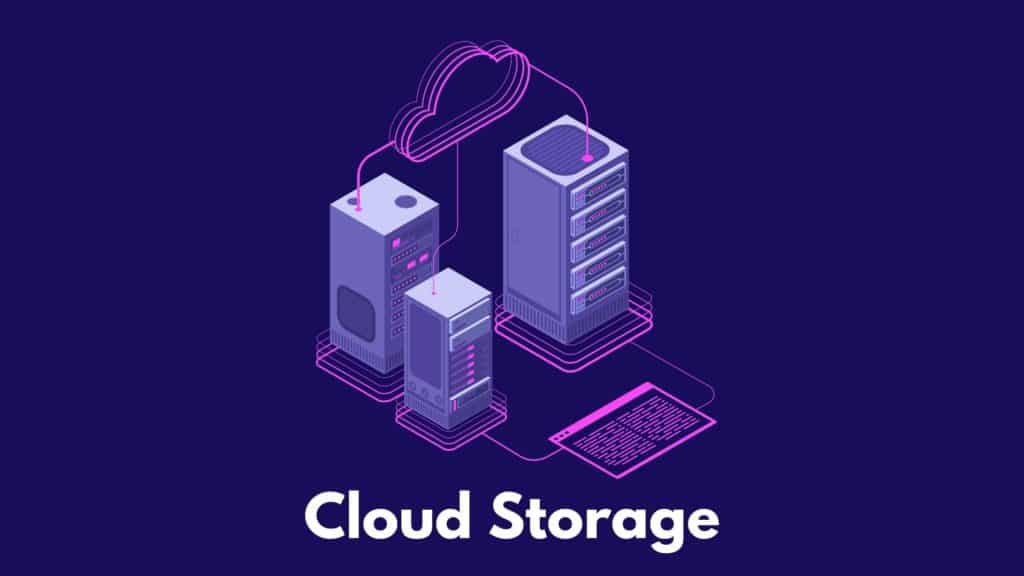
Cloud storage giants like Google, Amazon, Dropbox, Microsoft, etc store their user data on a single server. When you need to access a file, it is sent back to you from the same server.
Today, cloud storage services also make use of distributed storage. This keeps copies of your data stored on multiple servers to make sure you can access it even if a server goes down.
That was all about cloud storage. However, a decentralized cloud storage works quite differently!
Its meaning lies in the name itself. ‘Decentralized’ refers to your data being stored not on a single server, but on multiple computers connected through a decentralized storage network. It is similar to a peer-to-peer network.
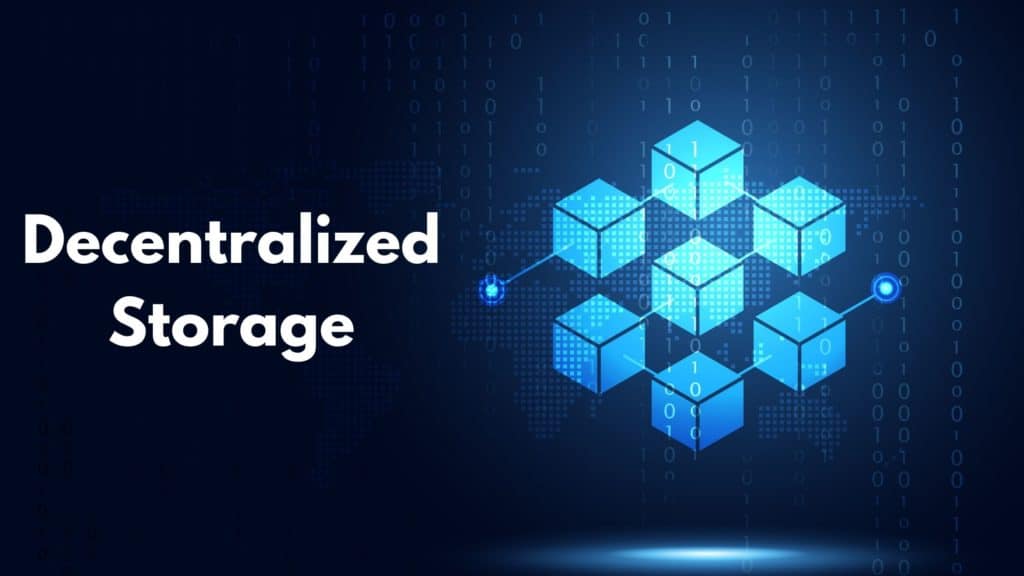
But whom do these computers belong to? These systems belong to individual users or organisations who can register themselves as ‘nodes’ to host data.
Let me make this easy for you with an example. If I have an empty hard disk, I can rent it out to a decentralized storage provider, and in exchange for that I will receive payment in cryptocurrency. Cool, right?
Do you have unused storage space on your hard drive? Wondering how you can rent it out? Well, keep reading, cause I’ve revealed it later in the article.
First, let us understand how a decentralized storage system works.
How Does Decentralized Storage Work?
Let us understand the working of a decentralized storage with a simple file storage example.
Let’s assume 50 users offered their hard drive space to a decentralized storage company. You are a customer who wants to store his/her data.
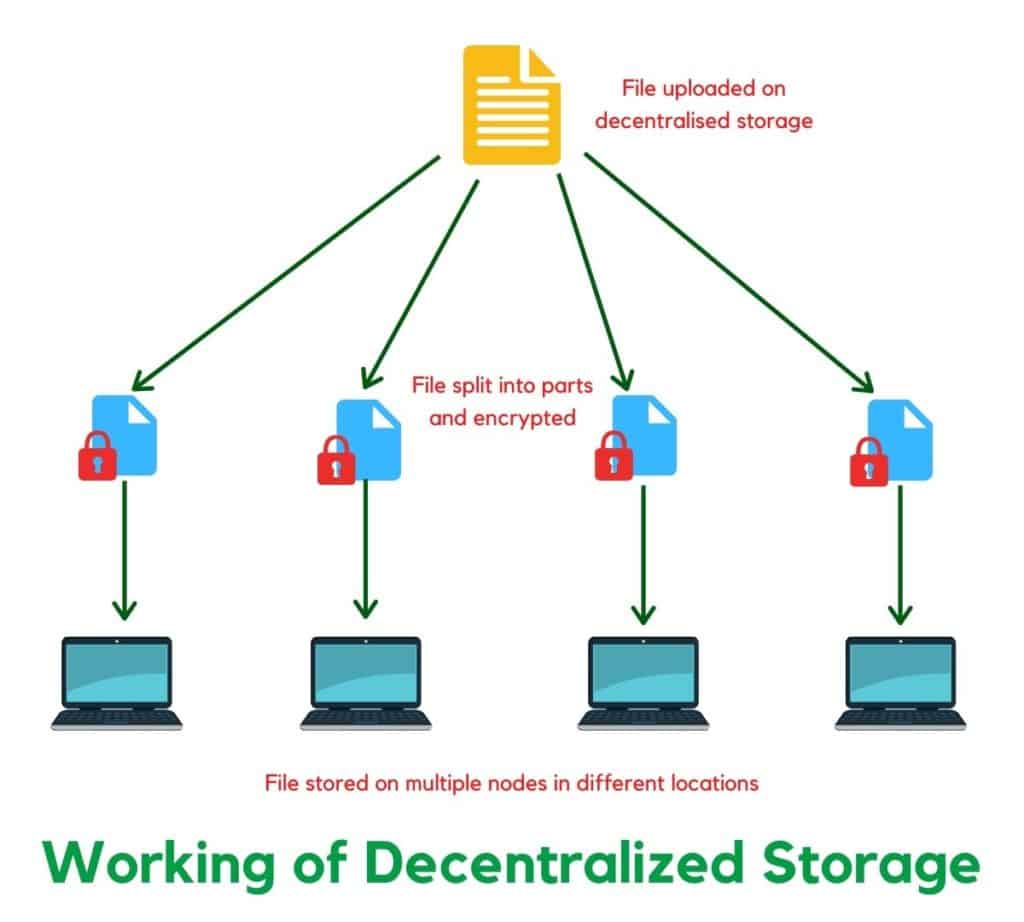
When you upload a file to the decentralized storage, the following process takes place:
- The file is broken down into smaller pieces
- All parts are secured with a strong encryption
- Every part is stored on a different computer
The decryption key of your file remains safe with you. This means that even the node operator cannot decode the data in your file. And even if he/she does, they can never have access to all the parts of your files stored on different computers.
Problems with Cloud Storage
To understand the purpose behind developing a whole new storage model, we need to understand what are major problems with cloud storage services. Let’s check them out one by one.
- Cloud storage is quite costly because it spends a lot of money on server purchase, maintenance, etc.
- It is prone to cyberattacks because the server is housed in a single location.
- If the server is down, a user can’t access his/her data.
- Security is questionable. Cloud storage providers might share your private information if they belong to 5 Eyes’ Alliances.
Now, let us see how a decentralized storage addresses and solves these problems.
Advantages of Decentralized Storage
Decentralized cloud storage offers lots of advantages over the mainstream cloud storage services. Let’s understand them in depth.
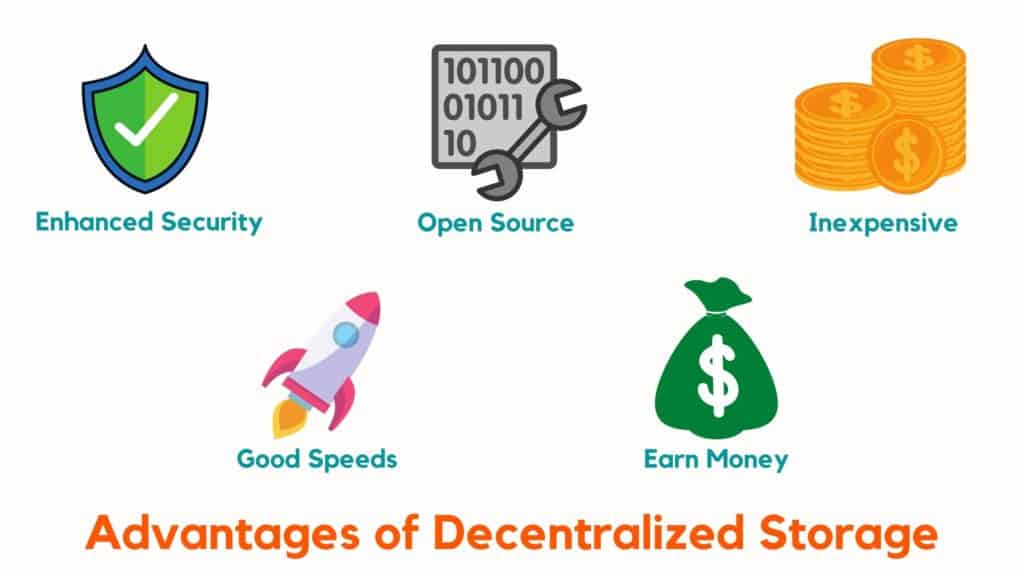
1. Enhanced Security
Every file uploaded on a decentralized storage is split into parts, encrypted, and stored on multiple computers. Only you hold the decryption key of your file. This ensures that nobody else can ever access your data in entirety.
2. Open Source Service
Most decentralized storage services are open source. This makes it easier for experts, researchers, and developers to find flaws in their code and fix them immediately.
3. Inexpensive Solution
Centralized servers are purchased jointly by big companies (E.g. Amazon, Microsoft, etc.), and used to store data of millions of users. These servers require:
- Regular maintenance
- Cooling systems
- Employees to safeguard them
- A technical know-how to operate them
All these factors are responsible for the prices of cloud storage going through the roof!
But in decentralized storage, the servers belong to different individuals spread throughout the world.
These individuals maintain and operate their systems on their own, which cuts down the costs to a great extent. Therefore, decentralized storage is super cheap!
4. Speeds
Decentralized storage states that it offers faster speeds, which I feel is only true on paper. Because I got to experience very slow speeds on Internxt, a popular decentralized storage. (I have talked about it in detail below, so keep reading!)
Speed of a decentralized storage mainly depends on two factors:
- How well it has been structured
- How many nodes exist around you
Let’s understand this with the help of an example. Let’s suppose you are in India, alright? You upload a file on decentralized storage, but there’s only one storage node available in India.
Now, your file will be cut down into parts and stored on different servers in several countries. If you wish to download your file, what would happen? It would fetch all the parts of your file from different computers in different countries.
All these parts will be combined and decrypted using your private key, and then you will be able to view your file. This entire process would consume time and would cause slower speeds!
We might get to see better speeds in the coming years after more numbers of nodes are available, and a better structure for decentralized storage is established.
5. Opportunity to Earn Money
Decentralized storage can help you earn money in cryptocurrency if you have spare space on your hard disk. (Curious to know how? Keep reading!)
What are Storage Tokens?
You can think of storage tokens like digital money. Every decentralized storage has its own storage token.
Users can use them to either buy storage space, or earn in storage tokens for renting out their unused storage space! Cool, right?
Some examples of storage tokens might be Siacoin, Storj, FIL, etc.
Popular Examples of Decentralized Storage
Filecoin
Filecoin was recently launched in October 2020, and got too popular, too soon! It uses FIL as its storage token to reward nodes for their services.
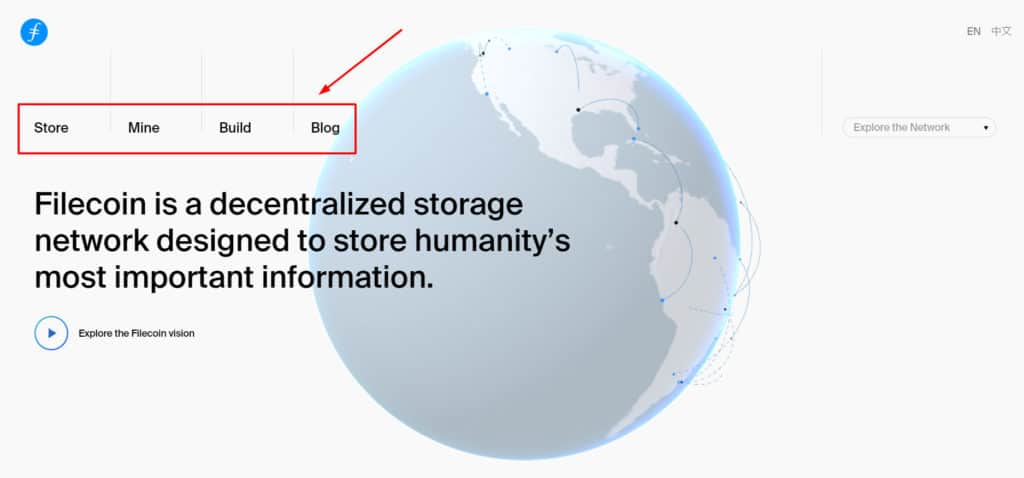
Filecoin network lets you use Slate or Lotus to store your files, and even create your own decentralized network. This makes it a quite good platform for developers!
Storj
Storj was launched back in 2014. It is built on Ethereum, which is an open source blockchain network. Their storage token is called Storj.
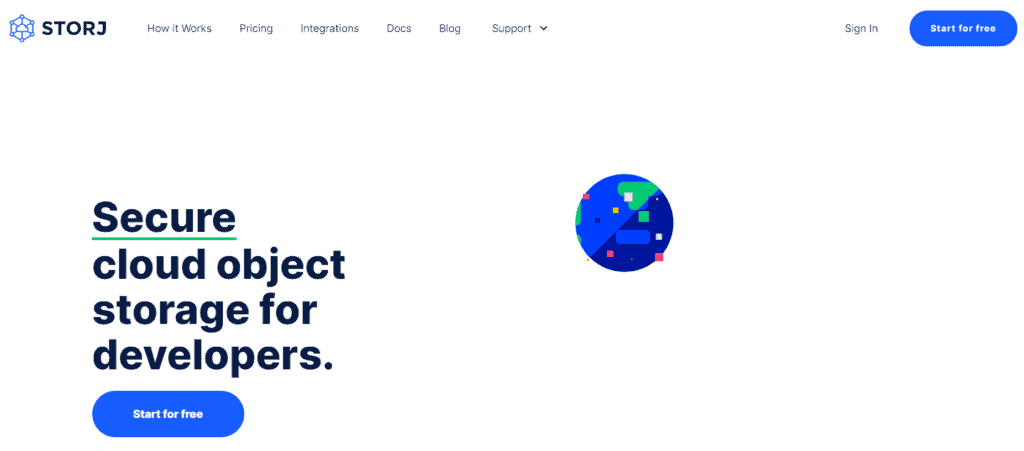
If you upload a file on Storj, it splits it into 80 pieces. Out of these, only 29 are required to make up your file again. All the rest pieces are copies kept as a backup!
This is how Storj simplifies the process of data retrieval when multiple nodes are down. Storj is primarily designed as a platform for developers.
Sia
Sia was launched in 2015. Its official storage token is called SiaCoin.
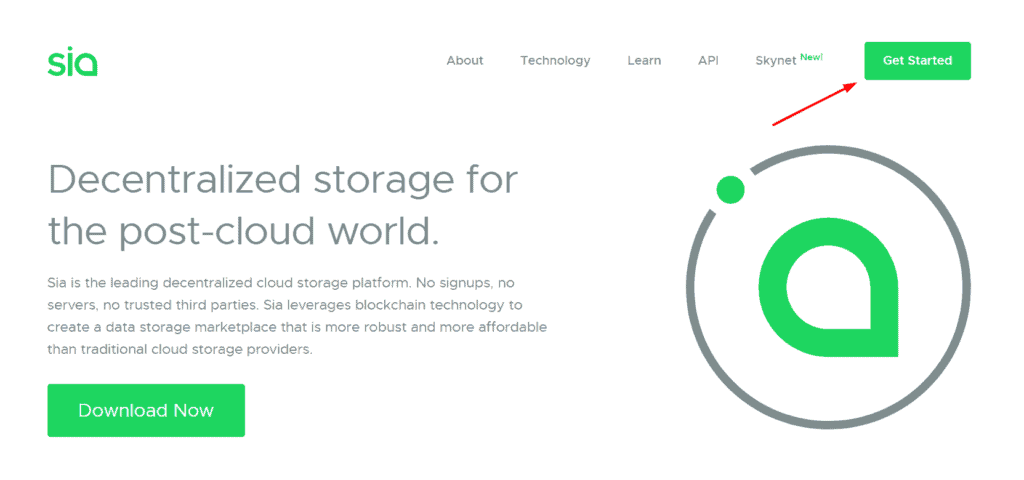
Sia uses TwoFish algorithm to encrypt your data, which is believed to be more secure than the industry standard AES 256-bit encryption.
Because Sia uses blockchain technology to keep track of all data being uploaded and downloaded, clients only have to pay for storage they use.
Internxt
Internxt is the most easy to use decentralized data storage at present!
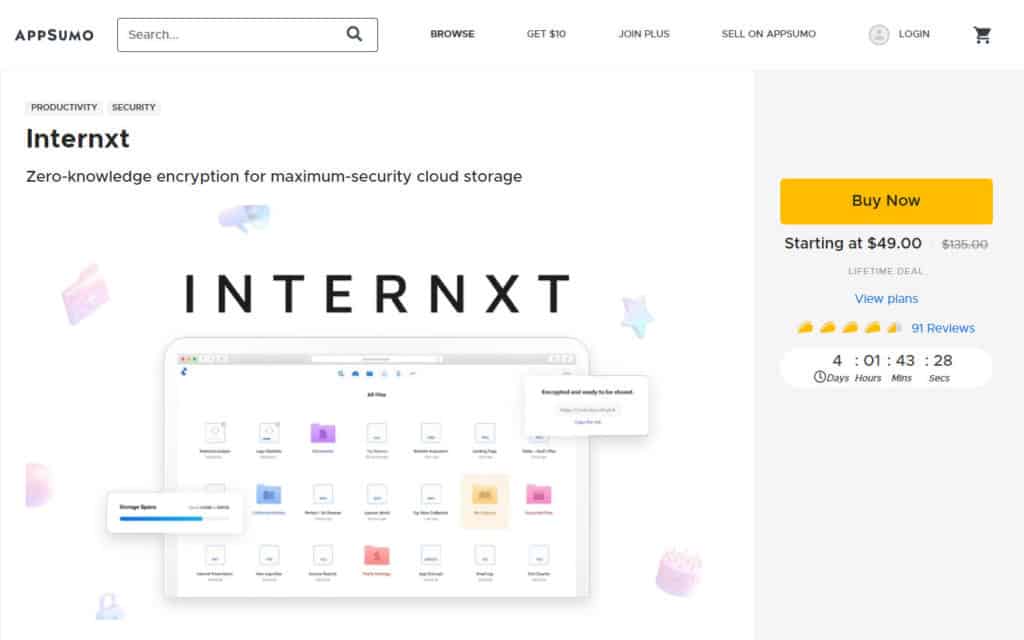
It uses zero knowledge encryption to secure your data, and is available as a lifetime deal on AppSumo right now, So you can check that out!
I recently purchased it, and honestly, the speeds are really slow. Uploading a file of 825 MB on it took 12 long minutes! It has some bugs, lacks basic functions, and needs a lot of improvements right now.
If you need a lifetime plan, it is better to go with Icedrive right now. It is a modern cloud storage solution with better privacy and faster speeds. To know more, check out my Icedrive Review.
Disadvantages of Decentralized Storage
Decentralized storage is a new player in the market. Therefore, it has some obvious disadvantages as of now. Let’s see what they are.
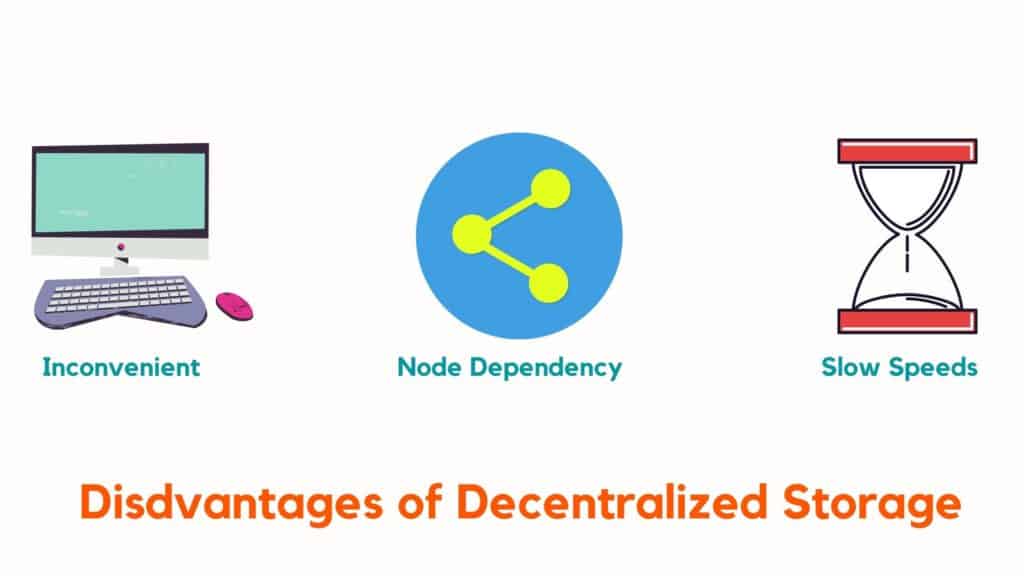
1. Node Dependency
Decentralized storage utilises the spare hard drives of individuals and organisations. Therefore, most of the important factors to keep it operational are people-dependent, like:
- Total storage space available
- Number of nodes around you
- Structure of nodes
- Number of copies of a file stored
2. Slow Speeds
Speeds are bound to be slow if there are no nodes around you.
3. Less Convenience
Though decentralized storage guarantees more privacy and security, it lags in providing convenience to its users.
As of now, there is a lack of a proper system. So, you would experience a lot of problems with its speed, file previewing, video streaming, data sharing, etc.
Who Should Use decentralized Storage?
Decentralized storage solutions are definitely gaining popularity with every passing day. However, you will only be able to appreciate its qualities if you have used various types of storage services before.
So, if you are a business organization or an individual who needs:
- A storage solution cheaper than cloud storage
- To safely store sensitive information
- Faster upload and download speeds (depends on nodes)
- More security from cyber attackers
- 24*7 availability with zero downtime
- More control over your data and personal information
Then you can definitely try out decentralized storage.
How can decentralized storage models prevent massive data breaches?
Decentralized storage addresses many flaws of cloud storage, which is why it would prove to be a highly effective solution to prevent data breaches.
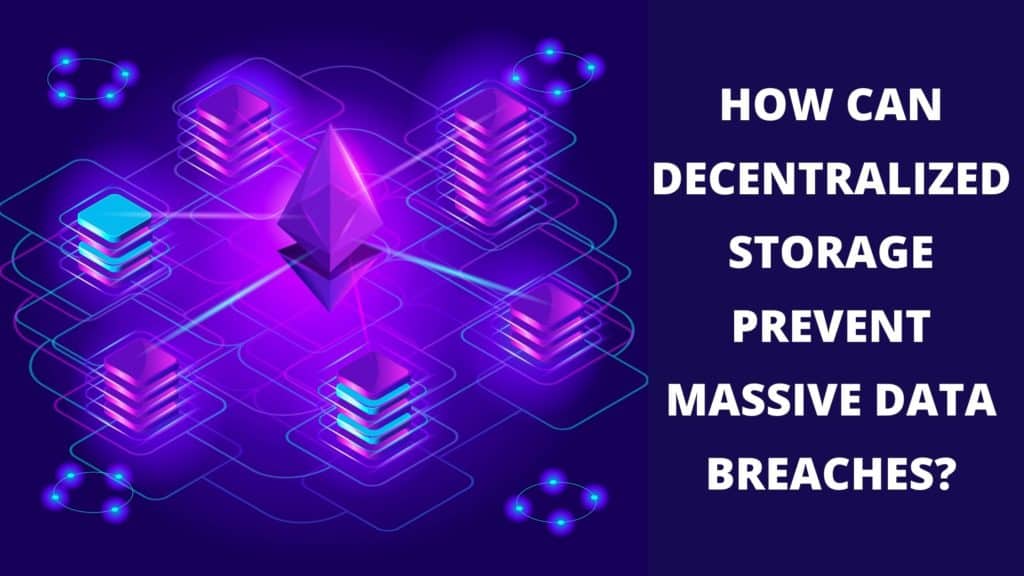
- It keeps our data encrypted and the private keys belong to use. This helps ensure that nobody else can access our data.
- Our files are cut down into multiple parts and saved on different computers. This ensures nobody can access our data in entirety.
- Unlike Cloud storage, there’s no single server that hosts our files. This also prevents DDoS attacks!
- Decentralized storage uses Blockchain to store records and keep track of all uploads, downloads, edits to the files, etc. Blockchain technology is immutable, which means it permanently saves all the records and nobody can tamper with them.
Can Decentralized Storage Replace Cloud Storage?
Decentralized storage might become mainstream in the future. But as of now, it can’t even compete with cloud storage, much less replace it!
Decentralized storage is a new technology, and it needs time to make improvements and establish itself.
Most Indians only know of Google Drive when it comes to cloud storage. In a country where most people are unaware of terms like zero knowledge encryption (or powerful cloud storage services like pCloud and Icedrive that implement such security practices), I don’t think it’s the right time to introduce decentralized storage yet!
Undoubtedly, the concept of decentralized storage looks promising, and I have complete faith in it. However, it needs more improvements as of now.
Should You Invest in Decentralized Storage?
All decentralized storage services like Storj, Filecoin, Sia, etc have their own cryptocurrencies for their platforms that they use top pay their node operators, etc. But, everyone is free to invest in them!
For example, 1 Filecoin (FIL) can be currently purchased for over ₹12,000 today.
If you believe in this new technology and feel like it’s going to grow to become a big thing in the coming years, then you should invest in storage tokens.
Personally, I have not been investing in cryptocurrencies for a long time. But whenever I start, I would begin with a small investment and would keep a tiny amount for storage tokens as well.
How to Earn Money Through Decentralized Storage?
Yes, it is very much possible to earn money (as cryptocurrencies) through decentralized storage. All you need to do is rent out your free storage space to the companies that provide decentralized storage services.
Well well well, it’s not as easy as it looks!
In order to function as a host, renting free storage space on your hard drive is not enough. Your system needs to meet the hardware requirements as well.
A host computer essentially needs to have a proper hardware, sufficient storage capacity, a cooling system, 24/7 electricity supply, a proper internet connection, etc.
This is important because if your system does not perform well, their platform would lose trustworthiness. The users would stop paying the company. This would ultimately mean no money for you either!
For instance, if you wish to operate as a node on Storj, these are the minimum requirements your system must fulfill:
- 1 processor core dedicated to each node
- 8 to 24 TB space per node
- 16+ TB of bandwidth per month
- 100MBps bandwidth upstream and downstream
- The system should be online and working 99.5% of time per month (which means you can stay offline for just around 4 hours a month!)
So, if you have a powerful system, good electricity, and internet availability, then you can become a node and earn cryptocurrency!
Conclusion
Though the concept of a decentralized data storage looks unique and promising, it cannot replace or even compete with the centralized cloud storage as of now.
There are lots of improvements constantly being made and hopefully, we will get to see some cool innovations in the coming years!
I am really fascinated with the future possibilities of decentralization of data. In my opinion, we will soon get to see hybrid models implementing centralized, distributed, and decentralized storage together.
This would ensure that all these models complement each other’s pros and cons to form an unbeatable storage platform. The possibilities are infinite!
What are your opinions on it? I would really like to know in the comments section below.
Anyway, I hope you got to learn something new from this article. If you found this informative and want to read more such content, subscribe to my Newsletter.
This is Kripesh signing off! Stay safe and keep learning!


Decentralized storage, simply put, is an application of blockchain technology to bolster privacy and data security in the realm of cloud storage. Really Great information. Thanks for sharing..